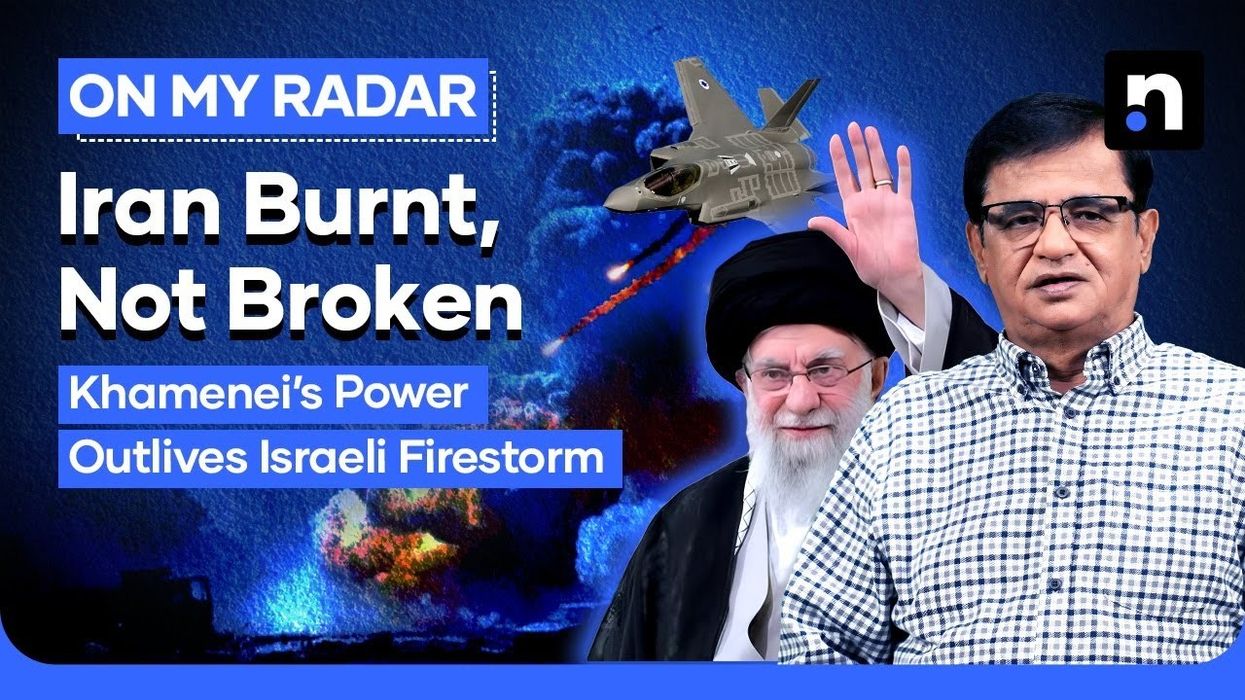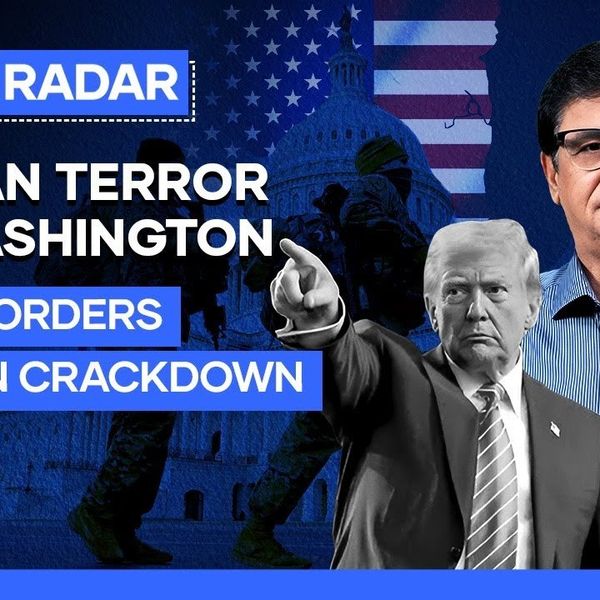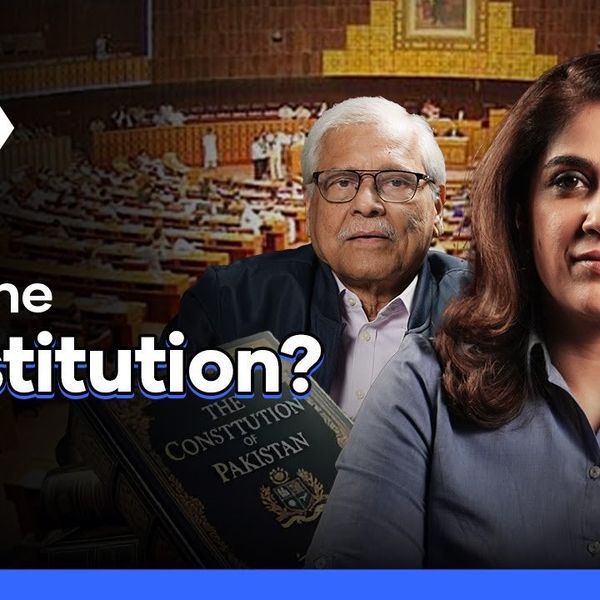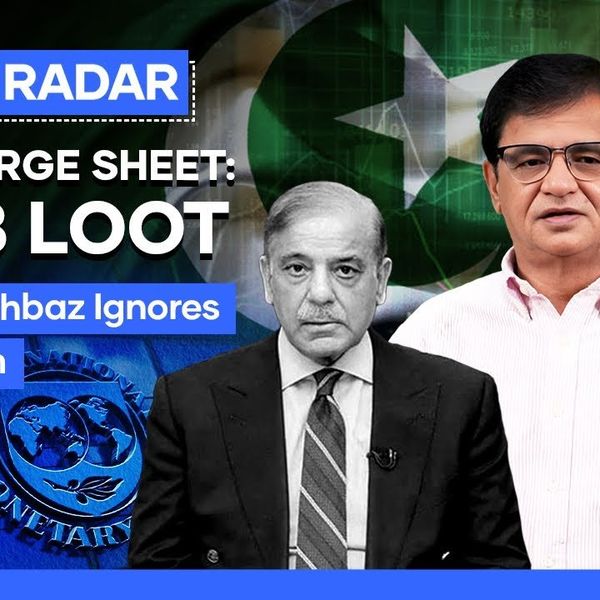Despite heavy Israeli strikes, Iran’s leadership and nuclear capacity remain intact
Despite the death of key commanders and scientists, Iran’s political core remains unshaken, says Kamran Khan
News Desk
The News Desk provides timely and factual coverage of national and international events, with an emphasis on accuracy and clarity.
Israeli military strikes may have devastated Iran’s military leadership and key energy and nuclear infrastructure, but the Islamic Republic’s political and ideological foundations remain unshaken, Kamran Khan said in a vlog.
According to Khan, the myth of “regime change” in Iran, long championed by Israel and supported in Western capitals, has not materialized—even after four days of what he called the “most extensive and coordinated” Israeli assault in history.
“Iran today is wounded and scorched, but firmly rooted in its ideological foundation,” Khan said.
More than 100 sites across Iran were hit by drones and missiles in the first wave alone, Khan reported, citing international and regional news agencies.
At least nine of Iran’s top-tier military commanders have been killed, including Major General Mohammad Hossein Bagheri, IRGC chief Major General Hossein Salami, and aerospace commander Amir Ali Hajizadeh.
Khan said 14 senior nuclear scientists were also reportedly killed in the bombardments, among them Mohsen Fakhrizadeh, believed to be the architect of Iran’s nuclear program.
Yet, despite this “unprecedented loss of human capital,” Iran’s government, clerical leadership, and nuclear infrastructure survived the attack, Khan emphasized.
“Israel wanted regime collapse. What it got was a more united Iran—and a stronger grip by Supreme Leader Ayatollah Ali Khamenei,” Khan said.
The attack, he noted, had the backing of the United States. Israeli Prime Minister Benjamin Netanyahu publicly acknowledged coordination with Washington, and intelligence reports suggest Israel also sought to target Khamenei directly—though President Donald Trump reportedly vetoed that proposal.
Khan highlighted what he called the “paradox” of the situation. While Iran’s military backbone has been fractured and key energy sites destroyed, the underground uranium enrichment program remains operational.
“Israel may have slowed Iran’s nuclear timeline, but not its capability,” Khan asserted. “The program lives—deep underground and protected.”
Civilian energy infrastructure suffered the most damage, he added. Fires raged at the Shahran fuel depot near Tehran, while satellite imagery confirmed extensive damage to multiple refineries and gas fields.
Even so, Iran’s political structure showed no signs of internal rupture.
“No generals defected. No resignations. No opposition movement. Elite cohesion remains intact,” Khan said. “If anything, hardliners have gained strength.”
Khan described the Israeli offensive as both devastating and psychologically impactful. But he stressed that Iran’s counterstrikes—though technically inferior—had their own strategic value.
Over 200 missiles and drones were fired at Israel, according to Khan, many launched not from Iran itself but from allied militias in Iraq and Syria. While Israel’s Iron Dome intercepted most, some broke through.
Haifa’s oil terminals were damaged, causing temporary fuel shortages in northern Israel. Residential areas in Tel Aviv were also struck, including Neve Tzedek and Ramat Gan. Israel’s Ministry of Defense headquarters, located near Kirya, was within range of missile fire.
“This is a psychological first,” said Khan. “Iran’s missiles reached Israeli cities. That has never happened before.”
Despite the intensity, Khan stressed that the Israeli campaign has not achieved its political aims.
“This was not the regime-toppling shock-and-awe Tel Aviv wanted. Iran’s leadership survived—and has emerged more defiant,” Khan said.
He noted that the international community—including the U.S., Russia, Germany, Turkey, and Gulf states—has shifted into diplomatic gear. President Trump has expressed hope for a ceasefire or eventual deal.
Iran’s foreign minister, Abbas Araghchi, also signaled restraint.
“We didn’t start this war, and we don’t want to escalate it,” Araghchi said, in remarks highlighted by Khan.
Yet the region remains on edge. Khan warned that if hostilities persist, a “war of attrition” could begin—where neither side wins, but everyone bleeds.
“So far, this is a stalemate—perhaps the most dangerous kind,” Khan concluded. “Israel may hit Iran’s forces, but not its spirit. And Iran may hurt Israel, but not stop it. The real loser may be regional peace.”











Comments
See what people are discussing